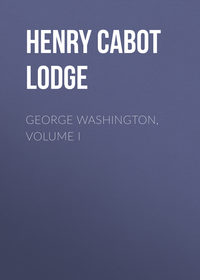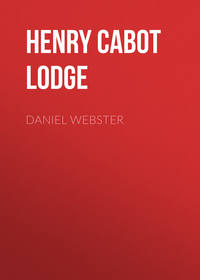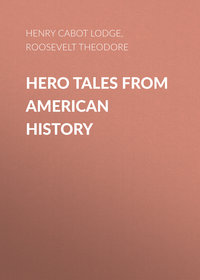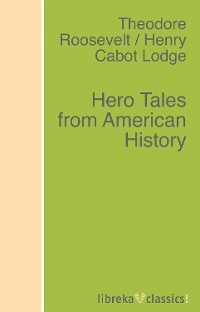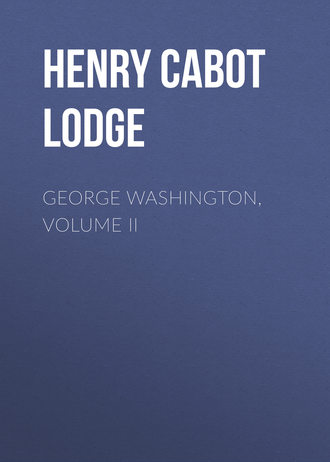 полная версия
полная версияGeorge Washington, Volume II
Thus the few letters to a few friends extended to many letters to many friends, and traveled into every State. They all urged the necessity of adopting the Constitution as the best that could be obtained. What Washington's precise objections to the Constitution were is not clear. In a general way it was not energetic enough to come up to his ideal, but he never particularized in his criticisms. He may have admitted the existence of defects in order simply to disarm opposition, and doubtless he, like most of the framers, was by no means completely satisfied with his work. But he brushed all faults aside, and drove steadily forward to the great end in view. He was as far removed as possible from that highly virtuous and very ineffective class of persons who will not support anything that is not perfect, and who generally contrive to do more harm than all the avowed enemies of sound government. Washington did not stop to worry over and argue about details, but sought steadily to bring to pass the main object at which he aimed. As he had labored for the convention, so he now labored for the Constitution, and his letters to his friends not only had great weight in forming a Federal party and directing its movements, but extracts from them were quoted and published, thus exerting a direct and powerful influence on public opinion.
He made himself deeply felt in this way everywhere, but of course more in his own State than anywhere else. His confidence at first in regard to Virginia changed gradually to an intense and well-grounded anxiety, and he not only used every means, as the conflict extended, to strengthen his friends and gain votes, but he received and circulated personally copies of "The Federalist," in order to educate public opinion. The contest in the Virginia convention was for a long time doubtful, but finally the end was reached, and the decision was favorable. Without Washington's influence, it is safe to say that the Constitution would have been lost in Virginia, and without Virginia the great experiment would probably have failed. In the same spirit he worked on after the new scheme had secured enough States to insure a trial. The Constitution had been ratified; it must now be made to work, and Washington wrote earnestly to the leaders in the various States, urging them to see to it that "Federalists," stanch friends of the Constitution, were elected to Congress. There was no vagueness about his notions on this point. A party had carried the Constitution and secured its ratification, and to that party he wished the administration and establishment of the new system to be intrusted. He did not take the view that, because the fight was over, it was henceforth to be considered that there had been no fight, and that all men were politically alike. He was quite ready to do all in his power to conciliate the opponents of union and the Constitution, but he did not believe that the momentous task of converting the paper system into a living organism should be confided to any hands other than those of its tried and trusty friends.
But while he was looking so carefully after the choice of the right men to fill the legislature of the new government, the people of the country turned to him with the universal demand that he should stand at the head of it, and fill the great office of first President of the Republic. In response to the first suggestion that came, he recognized the fact that he was likely to be again called upon for another great public service, and added simply that at his age it involved a sacrifice which admitted of no compensation. He maintained this tone whenever he alluded to the subject, in response to the numerous letters urging him to accept. But although he declined to announce any decision, he had made up his mind to the inevitable. He had put his hand to the plough, and he would not turn back. His only anxiety was that the people should know that he shrank from the office, and would only leave his farm to take it from a sense of overmastering duty. Besides his reluctance to engage in a fresh struggle, and his fear that his motives might be misunderstood, he had the same diffidence in his own abilities which weighed upon him when he took command of the armies. His passion for success, which determined him to accept the presidency, if it was deemed indispensable that he should do so, made him dread failure with an almost morbid keenness, although his courage was too high and his will too strong ever to draw back. Responsibility weighed upon his spirits, but it could not daunt him. He wrote to Trumbull in December, 1788, that he saw "nothing but clouds and darkness before him," but when the hour came he was ready. The elections were favorable to the Federalists. The electoral colleges gave Washington their unanimous vote, and on April 16, having been duly notified by Congress of his election, he left Mount Vernon for New York, to assume the conduct of the government, and stand at the head of the new Union in its first battle for life.
From the early day when he went out to seek Shirley and win redress against the assumptions of British officers, Washington's journeys to the North had been memorable in their purposes. He had traveled northward to sit in the first continental congress, to take command of the army, and to preside over the constitutional convention. Now he went, in the fullness of his fame, to enter upon a task less dangerous, perhaps, than leading armies, but more beset with difficulties, and more perilous to his reputation and peace of mind, than any he had yet undertaken. He felt all this keenly, and noted in his diary: "About ten o'clock I bade adieu to Mount Vernon, to private life, and to domestic felicity; and with a mind oppressed with more anxious and painful sensations than I have words to express, set out for New York, with the best disposition to render service to my country, in obedience to its call, but with less hope of answering its expectations."
The first stage of his journey took him only to Alexandria, a few miles from his home, where a public dinner was given to him by his friends and neighbors. He was deeply moved when he rose to reply to the words of affection addressed to him by the mayor as spokesman of the people. "All that now remains for me," he said, "is to commit myself and you to the care of that beneficent Being who, on a former occasion, happily brought us together after a long and distressing separation. Perhaps the same gracious Providence will again indulge me. But words fail me. Unutterable sensations must then be left to more expressive silence, while from an aching heart I bid all my affectionate friends and kind neighbors farewell."
So he left his home, sad at the parting, looking steadily, but not joyfully, to the future, and silent as was his wont. The simple dinner with his friends and neighbors at Alexandria was but the beginning of the chorus of praise and Godspeed which rose higher and stronger as he advanced. The road, as he traveled, was lined with people, to see him and cheer him as he passed. In every village the people from the farm and workshop crowded the streets to watch for his carriage, and the ringing of bells and firing of guns marked his coming and his going. At Baltimore a cavalcade of citizens escorted him, and cannon roared a welcome. At the Pennsylvania line Governor Mifflin, with soldiers and citizens, gathered to greet him. At Chester he mounted a horse, and in the midst of a troop of cavalry rode into Philadelphia, beneath triumphal arches, for a day of public rejoicing and festivity. At Trenton, instead of snow and darkness, and a sudden onslaught upon surprised Hessians, there was mellow sunshine, an arch of triumph, and young girls walking before him, strewing flowers in his path, and singing songs of praise and gratitude. When he reached Elizabethtown Point, the committees of Congress met him, and he there went on board a barge manned by thirteen pilots in white uniform, and was rowed to the city of New York. A long procession of barges swept after him with music and song, while the ships in the harbor, covered with flags, fired salutes in his honor. When he reached the landing he declined to enter a carriage, but walked to his house, accompanied by Governor Clinton. He was dressed in the familiar buff and blue, and, as the people caught sight of the stately figure and the beloved colors, hats went off and the crowd bowed as he went by, bending like the ripened grain when the summer wind passes over it, and breaking forth into loud and repeated cheers.
From Mount Vernon to New York it had been one long triumphal march. There was no imperial government to lend its power and military pageantry. There were no armies, with trophies to dazzle the eyes of the beholders; nor were there wealth and luxury to give pomp and splendor to the occasion. It was the simple outpouring of popular feeling, untaught and true, but full of reverence and gratitude to a great man. It was the noble instinct of hero-worship, always keen in humanity when the real hero comes to awaken it to life. Such an experience, rightly apprehended, would have impressed any man, and it affected Washington profoundly. He was deeply moved and touched, but he was neither excited nor elated. He took it all with soberness, almost with sadness, and when he was alone wrote in his diary:—
"The display of boats which attended and joined us on this occasion, some with vocal and some with instrumental music on board; the decorations of the ships, the roar of cannon and the loud acclamations of the people, which rent the skies as I passed along the wharves, filled my mind with sensations as painful (considering the reverse of this scene, which may be the case after all my labors to do good) as they were pleasing."
In the very moment of the highest personal glory, the only thought is of the work which he has to do. There is neither elation nor cynicism, neither indifference nor self-deception, but only deep feeling and a firm, clear look into the future of work and conflict which lay silent and unknown beyond the triumphal arches and the loud acclaim of the people.
On April 30 he was inaugurated. He went in procession to the hall, was received in the senate chamber, and thence proceeded to the balcony to take the oath. He was dressed in dark brown cloth of American manufacture, with a steel-hilted sword, and with his hair powdered and drawn back in the fashion of the time. When he appeared, a shout went up from the great crowd gathered beneath the balcony. Much overcome, he bowed in silence to the people, and there was an instant hush over all. Then Chancellor Livingston administered the oath. Washington laid his hand upon the Bible, bowed, and said solemnly when the oath was concluded, "I swear, so help me God," and, bending reverently, kissed the book. Livingston stepped forward, and raising his hand cried, "Long live George Washington, President of the United States!" Then the cheers broke forth again, the cannon roared, and the bells rang out. Washington withdrew to the hall, where he read his inaugural address to Congress, and the history of the United States of America under the Constitution was begun.
CHAPTER II
STARTING THE GOVERNMENT
Washington was deeply gratified by his reception at the hands of the people from Alexandria to New York. He was profoundly moved by the ceremonies of his inauguration, and when he turned from the balcony to the senate chamber he showed in his manner and voice how much he felt the meaning of all that had occurred. His speech to the assembled Congress was solemn and impressive, and with simple reverence he acknowledged the guiding hand of Providence in the fortunes of the States. He made no recommendations to Congress, but expressed his confidence in their wisdom and patriotism, adjured them to remember that the success of republican government would probably be finally settled by the success of their experiment, reminded them that amendments to the Constitution were to be considered, and informed them that he could not receive any pecuniary compensation for his services, and expected only that his expenses should be paid as in the Revolution. This was all. The first inaugural of the first President expressed only one thought, but that thought was pressed home with force. Washington wished the Congress to understand as he understood the weight and meaning of the task which had been imposed upon them, for he felt that if he could do this all would be well. How far he succeeded it would be impossible to say, but there can be no doubt as to the wisdom of his position. To have attempted to direct the first movements of Congress before he had really grasped the reins of the government would have given rise, very probably, to jealousy and opposition at the outset. When he had developed a policy, then it would be time to advise the senators and representatives how to carry it out. Meanwhile it was better to arouse their patriotism, awaken their sense of responsibility, and leave them free to begin their work under the guidance of these impressions.
As for himself, his feelings remained unchanged. He had accepted the great post with solemn anxiety, and when the prayers had all been said, and the last guns fired, when the music had ceased and the cheers had died away, and the illuminations had flickered and gone out, he wrote that in taking office he had given up all expectation of private happiness, but that he was encouraged by the popular affection, as well as by the belief that his motives were appreciated, and that, thus supported, he would do his best. In a few words, written some months later, he tersely stated what his office meant to him, and what grave difficulties surrounded his path.
"The establishment of our new government," he said, "seemed to be the last great experiment for promoting human happiness by a reasonable compact in civil society. It was to be, in the first instance, in a considerable degree, a government of accommodation as well as a government of laws. Much was to be done by prudence, much by conciliation, much by firmness. Few who are not philosophical spectators can realize the difficult and delicate part which a man in my situation had to act. All see, and most admire, the glare which hovers round the external happiness of elevated office. To me there is nothing in it beyond the lustre which may be reflected from its connection with a power of promoting human felicity. In our progress towards political happiness my station is new, and, if I may use the expression, I walk on untrodden ground. There is scarcely an action the motive of which may not be subject to a double interpretation. There is scarcely any part of my conduct which may not hereafter be drawn into precedent. If, after all my humble but faithful endeavors to advance the felicity of my country and mankind, I may indulge a hope that my labors have not been altogether without success, it will be the only real compensation I can receive in the closing scenes of life."
There is nothing very stimulating to the imagination in this soberness of mind and calmness of utterance. The military conquerors and the saviors of society, with epigrammatic sayings, dramatic effects and rhythmic proclamations, are much more exciting and dazzle the fancy much better. But it is this seriousness of mind, coupled with intensity of purpose and grim persistence, which has made the English-speaking race spread over the world and carry successful government in its train. The personal empire of Napoleon had crumbled before he died an exile in St. Helena, but the work of Washington still endures. Just what that work was, and how it was achieved, is all that still remains to be considered.
The policies set on foot and carried through under the first federal administration were so brilliant and so successful that we are apt to forget that months elapsed before the first of them was even announced. When Washington, on May 1, 1789, began his duties, there was absolutely nothing of the government of the United States in existence but a President and a Congress. The imperfect and broken machinery of the confederation still moved feebly, and performed some of the absolutely necessary functions of government. But the new organization had nothing to work with except these outworn remnants of a discarded system. There were no departments, and no arrangements for the collection of revenue or the management of the postal service. A few scattered soldiers formed the army, and no navy existed. There were no funds and no financial resources. There were not even traditions and forms of government, and, slight as these things may seem, settled methods of doing public business are essential to its prompt and proper transaction. These forms had to be devised and adopted first, and although they seem matters of course now, after a century of use, they were the subject of much thought and of some sharp controversy in 1789. The manner in which the President was to be addressed caused some heated discussion even before the inauguration. America had but just emerged from the colonial condition, and the colonial habits were still unbroken. In private letters we find Washington referred to as "His Highness," and in some newspapers as "His Highness the President-General," while the Senate committee reported in favor of addressing him as "His Highness the President of the United States and Protector of their Liberties." In the House, however, the democratic spirit was strong, there was a fierce attack upon the proposed titles, and that body ended by addressing Washington simply as the "President of the United States," which, as it happened, settled the question finally. Washington personally cared little for titles, although, as John Adams wrote to Mrs. Warren, he thought them appropriate to high office. But in this case he saw that there was a real danger lurking in the empty name, and so he was pleased by the decision of the House. Another matter was the relation between the President and the Senate. Should he communicate with them in writing or orally, being present during their deliberations as if they formed an executive council? It was promptly decided that nominations should be made in writing; but as to treaties, it was at first thought best that the President should deliver them to the Senate in person, and it was arranged with minute care where he should sit, beside the Vice-President, while the matter was under discussion. This arrangement, however, was abandoned after a single trial, and it was agreed that treaties, like nominations, should come with written messages.
Last and most important of all was the question of the mode of conduct and the etiquette to be established with regard to the President himself. In this, as in the matter of titles, Washington saw a real importance in what many persons might esteem only empty forms, and he proceeded with his customary thoroughness in dealing with the subject. What he did would be a precedent for the future as well as a target for present criticism, and he determined to devise a scheme which would resist attack, and be worthy to stand as an example for his successors. He therefore wrote to Madison: "The true medium, I conceive, must lie in pursuing such a course as will allow him (the President) time for all the official duties of his station. This should be the primary object. The next, to avoid as much as may be the charge of superciliousness, and seclusion from information, by too much reserve and too great a withdrawal of himself from company on the one hand, and the inconveniences, as well as a diminution of respectability, from too free an intercourse and too much familiarity on the other." This letter, with a set of queries, was also sent to the Vice-President, to Jay, and to Hamilton. They all agreed in the general views outlined by Washington. Adams, fresh from Europe, was inclined to surround the office, of which he justly had a lofty conception, with a good deal of ceremony, because he felt that these things were necessary in our relations with foreign nations. In the main, however, the advice of all who were consulted was in favor of keeping the nice line between too much reserve and too much familiarity, and this line, after all the advising, Washington of course drew for himself. He did it in this way. He decided that he would return no calls, and that he would receive no general visits except on specified days, and official visitors at fixed hours. The third point was in regard to dinner parties. The presidents of Congress hitherto had asked every one to dine, and had ended by keeping a sort of public table, to the waste of both time and dignity. Many persons, disgusted with this system, thought that the President ought not to ask anybody to dinner. But Washington, never given to extremes, decided that he would invite to dinner persons of official rank and strangers of distinction, but no one else, and that he would accept no invitations for himself. After a time he arranged to have a reception every Tuesday, from three to four in the afternoon, and Mrs. Washington held a similar levee on Fridays. These receptions, with a public dinner every week, were all the social entertainments for which the President had either time or health.
By these sensible and apparently unimportant arrangements, Washington managed to give free access to every one who was entitled to it, and yet preserved the dignity and reserve due to his office. It was one of the real although unmarked services which he rendered to the new government, and which contributed so much to its establishment, for it would have been very easy to have lowered the presidential office by a false idea of republican simplicity. It would have been equally easy to have made it odious by a cold seclusion on the one hand, or by pomp and ostentation on the other. With his usual good judgment and perfect taste, Washington steered between the opposing dangers, and yet notwithstanding the wisdom of his arrangements, and in spite of their simplicity, he did not escape calumny on account of them. One criticism was that at his reception every one stood, which was thought to savor of incipient monarchy. To this Washington replied, with the directness of which he was always capable, that it was not usual to sit on such occasions, and, if it were, he had no room large enough for the number of chairs that would be required, and that, as the whole thing was perfectly unceremonious, every one could come and go as he pleased. Fault was also found with the manner in which he bowed, an accusation to which he answered with an irony not untinged with bitterness and contempt: "That I have not been able to make bows to the taste of poor Colonel B. (who, by the by, I believe never saw one of them) is to be regretted, especially too, as, upon those occasions, they were indiscriminately bestowed, and the best I was master of. Would it not have been better to throw the veil of charity over them, ascribing their stiffness to the effects of age, or to the unskillfulness of my teacher, rather than to pride and dignity of office, which God knows has no charms for me?"
As party hostility developed, these attacks passed from the region of private conversation to the columns of newspapers and the declamation of mob orators, and an especial snarl was raised over the circumstance that at some public ball the President and Mrs. Washington were escorted to a sofa on a raised platform, and that guests passed before them and bowed. Much monarchy and aristocracy were perceived in this little matter, and Jefferson carefully set it down in that collection of withered slanders which he gave to an admiring posterity, after the grave had safely covered both him and those whom he feared and hated in his lifetime. This incident, however, was but an example of the political capital which was sought for in the conduct of the presidential office. The celebration of the birthday, the proposition to put Washington's head upon the coins, and many other similar trifles, were all twisted to the same purpose. The dynasty of Cleon has been a long one, so long that even the succession of the Popes seems temporary beside it, and it flourished in Washington's time as rankly as it did in Athens, or as it does to-day. The object of the assault varies, but the motives and the purpose are as old and as lasting as human nature. Envy and malice will always find a convenient shelter in pretended devotion to the public weal, and will seek revenge for their own lack of success by putting on the cloak of the tribune of the people, and perverting the noblest of offices to the basest uses.
But time sets all things even. The demagogues and the critics who assailed Washington's demeanor and behavior are forgotten, while the wise and simple customs which he established and framed for the great office that he honored, still prevail by virtue of their good sense. We part gladly with all remembrance of those bold defenders of liberty who saw in these slight forms forerunners of monarchy. We would even consent to drop into oblivion the precious legacy of Jefferson. But we will never part with the picture drawn by a loving hand of that stately figure, clad in black velvet, with the hand on the hilt of the sword, standing at one of Mrs. Washington's levees, and receiving with gentle and quiet dignity, full of kindliness but untinged by cheap familiarity, the crowd that came to pay their respects. It was well for the republic that at the threshold of its existence it had for President a man who, by the kindness of his heart, by his good sense, good manners, and fine breeding, gave to the office which he held and the government he founded the simple dignity which was part of himself and of his own high character.


